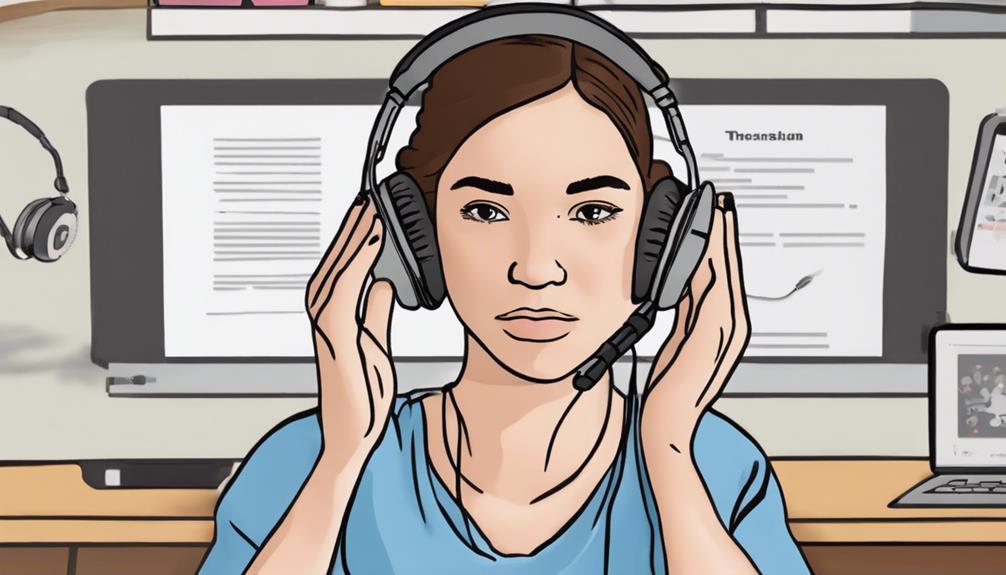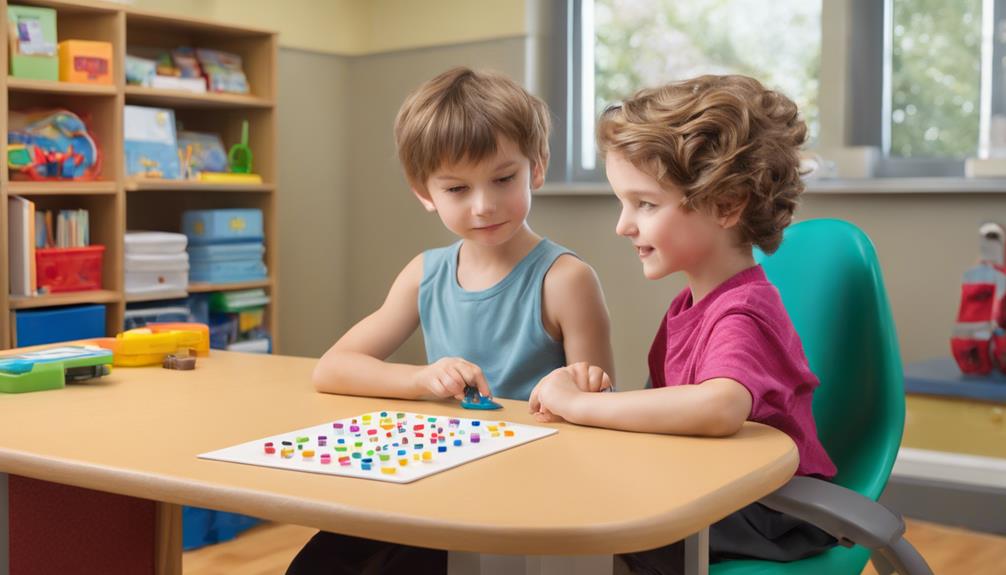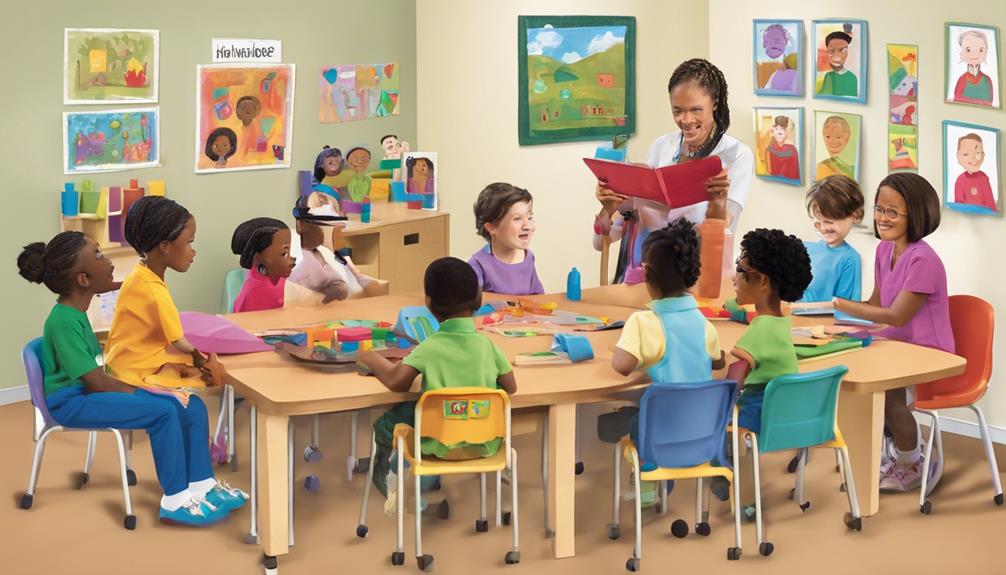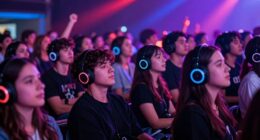As we navigate the realm of auditory processing disorder among high schoolers, it's intriguing to note that approximately 5% of school-aged children grapple with this auditory challenge daily.
Understanding the impact of auditory processing disorder on academic performance and social interactions is crucial. But what if there was a comprehensive guide tailored specifically for high school students, offering practical strategies and resources to support their journey towards academic success and improved well-being?
Stay tuned to uncover how this therapy guide can pave the way for enhanced learning experiences and overall growth in high schoolers facing auditory processing challenges.
Key Takeaways
- Tailored therapy improves sound skills and memory for high schoolers with Auditory Processing Disorder.
- Educational support strategies enhance academic performance and confidence in high school students with APD.
- Technology-based interventions offer personalized auditory processing exercises for high schoolers.
- Collaboration with teachers and specialists creates effective strategies for academic and social success in high school students with APD.
auditory processing disorder therapy tools for high schoolers
As an affiliate, we earn on qualifying purchases.
As an affiliate, we earn on qualifying purchases.
Understanding Auditory Processing Disorder Therapy
When addressing Auditory Processing Disorder therapy for high schoolers, understanding the core principles and techniques is essential for effective intervention.
Auditory Processing Disorder (APD) therapy for high schoolers aims to enhance sound distinction, memory, and sequencing skills crucial for improved listening and learning abilities. Therapy sessions often incorporate strategies such as emphasizing key words and utilizing visual aids to aid in comprehension.
Professionals, including speech-language therapists and educational therapists, commonly provide interventions for high schoolers with APD. These interventions are tailored to match the specific needs and challenges of each student, ensuring that therapy intensity and methods are suitable for their individual circumstances.

Bjorem Final Consonant Deletion Speech Therapy Deck 25 Minimal Pairs for Children Who Omit Final Sounds
Targets Final Consonant Deletion – Designed to help children who leave off the final sound in words, a…
As an affiliate, we earn on qualifying purchases.
As an affiliate, we earn on qualifying purchases.
Speech and Language Therapy Techniques
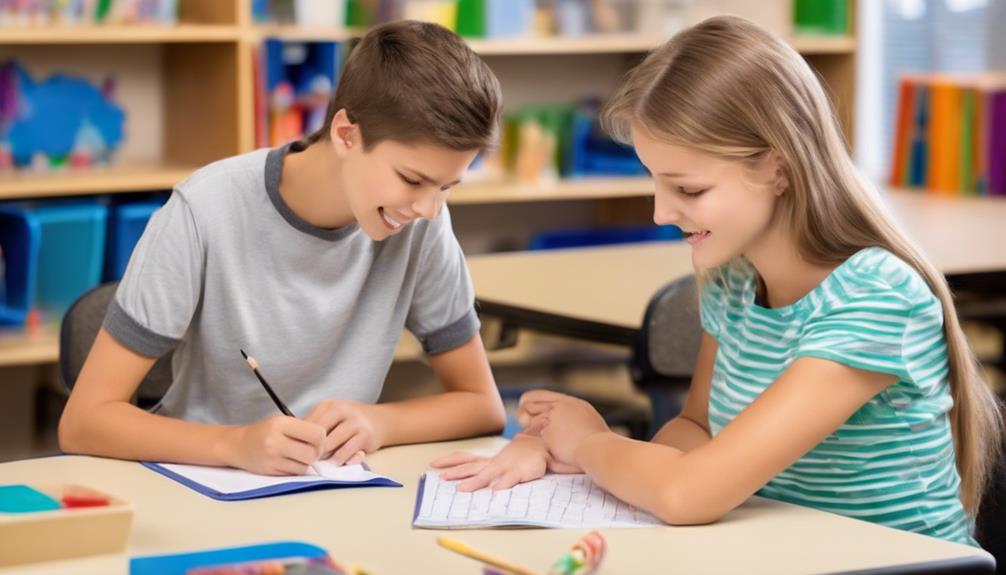
Speech and language therapy techniques play a vital role in improving sound processing and language comprehension skills for high schoolers with auditory processing disorder. Therapists employ strategies such as sound discrimination training and auditory memory exercises to address auditory processing difficulties prevalent in this group.
By tailoring therapy sessions to match the specific challenges faced by high school students, speech and language therapy aims to enhance their ability to actively listen, problem-solve, and develop compensatory strategies. These techniques not only aid in managing auditory challenges but also contribute to improved reading comprehension and overall academic performance.
Implementing speech and language therapy can have a significant positive impact on the lives of high schoolers with auditory processing disorder, providing them with the necessary tools to navigate their educational journey with greater confidence and success.

LEARNING BUGS Press to Learn Phonics, Interactive Letters and Sounds Talking Poster, Preschool & Kindergarten Learn to Read, Ages 3+
EARLY EDUCATION TOY: Stimulate early childhood development and foundation for learning to read. Screen-free and no moving images,…
As an affiliate, we earn on qualifying purchases.
As an affiliate, we earn on qualifying purchases.
Educational Support for High Schoolers
High schoolers with auditory processing disorder can greatly benefit from tailored educational support that addresses their specific needs and challenges. When it comes to educational support for high schoolers with auditory processing disorder, there are several key strategies that can make a significant difference in their academic performance and overall well-being:
- Accommodations: Providing accommodations such as preferential seating, extra time for assignments, and modified testing conditions can help level the playing field for high schoolers with auditory processing disorder.
- Multi-sensory learning: Utilizing multi-sensory learning techniques can enhance their understanding and retention of information by engaging multiple senses during the learning process.
- Building confidence: Educational support can aid in building confidence, which is essential for high schoolers with auditory processing disorder to navigate their academic journey successfully.
- Improving academic performance: By implementing tailored strategies and accommodations, high schoolers can see improvements in their academic performance and overall success in school.
- Developing strategies: Working with teachers, parents, and specialists can help high schoolers develop effective strategies for managing their auditory processing disorder and excelling in their studies.
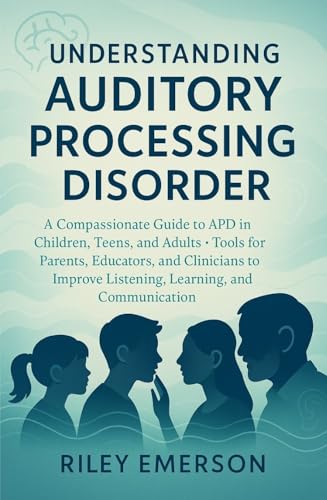
Understanding Auditory Processing Disorder: A Compassionate Guide to APD in Children, Teens, and Adults. Tools for Parents, Educators, and Clinicians to Improve Listening, Learning, and Communication
As an affiliate, we earn on qualifying purchases.
As an affiliate, we earn on qualifying purchases.
Technology-Based Therapy Solutions
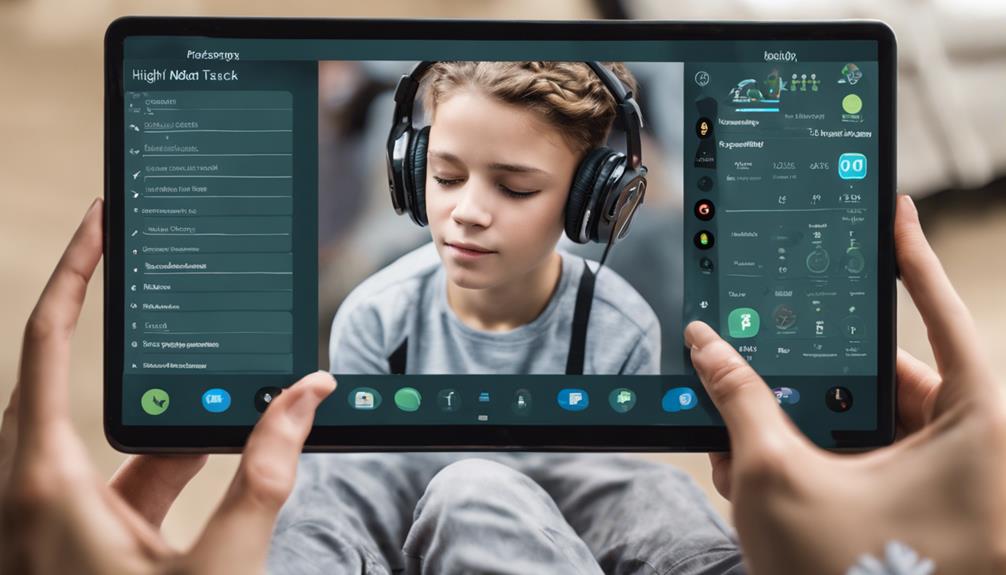
Utilizing technology-based therapy solutions can significantly enhance auditory processing skills in high schoolers with auditory processing disorder. These computer programs offer tailored interventions focusing on sound discrimination, auditory memory exercises, and language-processing strategies specific to the needs of high school students. The interactive nature of these programs provides engaging methods for improving auditory processing abilities. High schoolers with APD benefit from the convenience and flexibility of accessing therapy solutions through technology, enabling them to practice consistently and track their progress effectively.
| Technology-Based Therapy Solutions | Description | Benefits |
|---|---|---|
| Computer Programs | Tailored interventions for APD | Enhance sound discrimination skills |
| Auditory Memory Exercises | Engaging exercises for memory retention | Improve auditory memory abilities |
| Language-Processing Strategies | Strategies to enhance language processing | Develop effective communication and comprehension |
These technology-based therapies provide additional support and resources to high schoolers with auditory processing disorder, aiding in their listening and learning skills improvement.
Strategies for Academic and Social Success
Implementing effective strategies for academic and social success is crucial for high schoolers with auditory processing disorder to thrive in their learning environment and social interactions. Helping kids with APD requires a tailored approach that considers their unique challenges and strengths. Here are some evidence-based strategies to support their success:
- Preferential Seating: Seating high schoolers with APD near the front of the classroom can help minimize distractions and enhance their ability to focus on auditory information.
- Visual Aids: Using visual aids and written instructions can assist in comprehension and retention of information, supporting academic performance.
- Technology Solutions: Implementing tools like teacher microphones can improve the clarity of auditory information, making lectures more accessible for students with APD.
- Self-Advocacy: Encouraging students to request accommodations and use assistive technology empowers them to take control of their learning experience.
- Social Support: Providing guidance for navigating social interactions can help students with APD build confidence and form meaningful connections with their peers.
Frequently Asked Questions
How Do You Accommodate a Student With Auditory Processing Disorder?
To accommodate a student with auditory processing disorder, we provide preferential seating, use visual aids, gestures, and written instructions, break tasks into smaller steps, and utilize assistive technology like FM systems. All these strategies help reduce distractions, enhance understanding, and support processing abilities.
We also allow extra time for assignments and assessments to address processing speed challenges effectively. These accommodations create an inclusive learning environment that promotes student success.
What Are the Coping Skills for Auditory Processing Disorder?
When dealing with auditory processing disorder, coping skills are vital. Using visual aids, noise-cancelling headphones, and organizational strategies like color-coding can help. Advocating for accommodations, such as preferential seating, and practicing active listening techniques improve success. These strategies empower students to navigate challenges effectively and participate fully in classroom activities.
What Is the Best Treatment for Auditory Processing Disorder?
When it comes to addressing auditory processing disorder, speech-language therapy stands out as a common and effective treatment for high schoolers. This therapy focuses on enhancing essential skills like sound distinction, memory, and sequencing crucial for academic success.
Educational therapy tailored to the individual needs of high schoolers with auditory processing disorder can also be highly beneficial. Additionally, computer-assisted programs exist to further develop auditory processing skills in high school students.
What Is Auditory Processing Disorder in a 11 Year Old?
When we think about auditory processing disorder in an 11-year-old, it's important to understand the challenges they face in processing and understanding spoken information. This difficulty can impact their ability to follow directions, recall information, and differentiate between similar sounds.
These symptoms can affect various aspects of their life, such as academic performance, social interactions, and self-esteem. Early identification and intervention are crucial to support their academic success and emotional well-being.
Conclusion
In conclusion, it's crucial for high schoolers with auditory processing disorder to receive the right therapy and support. Did you know that up to 5% of school-aged children may have auditory processing difficulties?
By implementing tailored strategies and utilizing technology solutions, students can overcome challenges and thrive academically and socially.
Let's continue to advocate for resources and interventions that empower these individuals to reach their full potential.

